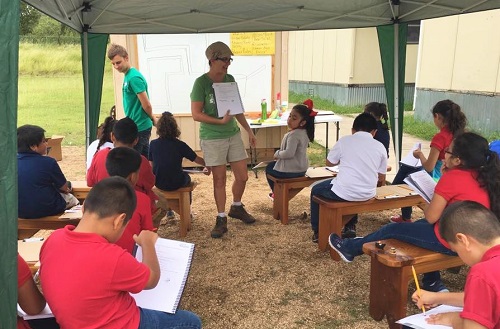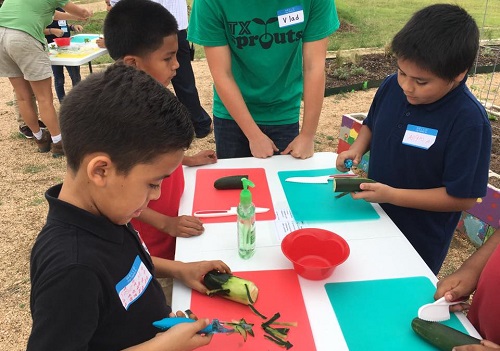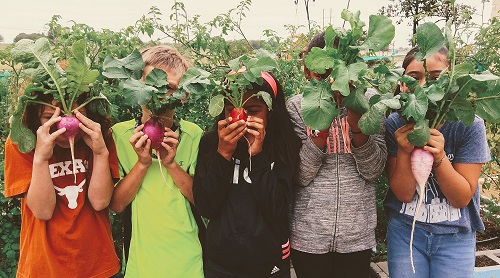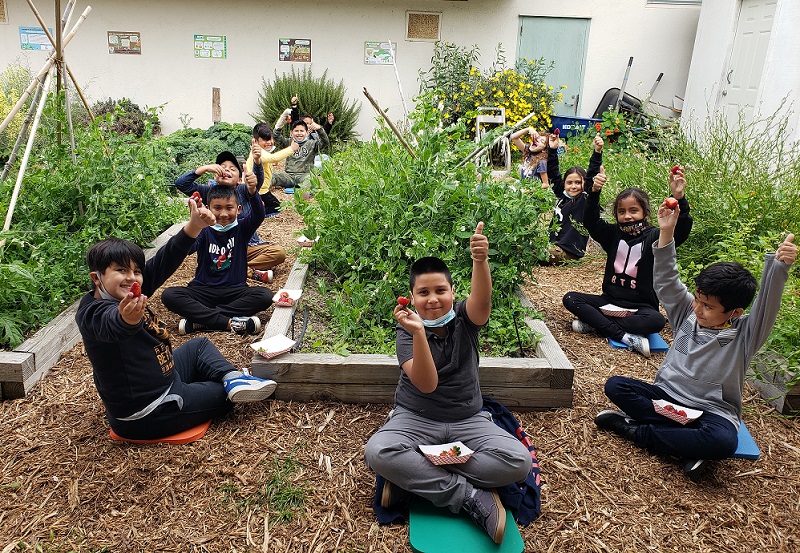Research has shown that eating fresh fruits and vegetables is an important part of a healthy lifestyle, but for some parents, getting their picky eaters to cooperate can be a challenge. Thankfully, a research team at the University of Texas at Austin has shown that school gardens may be able to change this, creating long-lasting healthy eating habits.
Through a nine-month study called TX Sprouts, third through fifth graders participated in garden-based education program where they learned to grow, harvest, and prepare fruits and vegetables in their school garden as well as simple nutrition lessons about these plants. Then, by tracking students’ behavior after the end of the program, researchers learned that, on average, students who participated in TX Sprouts ate an additional half serving of vegetables per day (or 20 percent more!) than they did before the program.
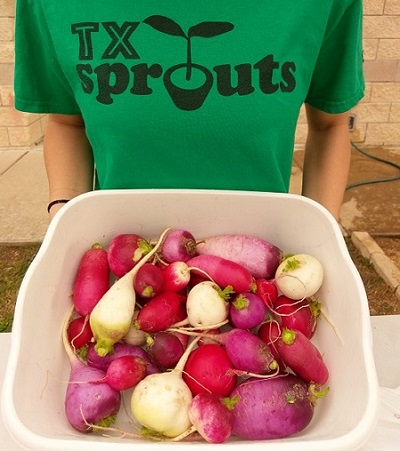
When asked about the students in the study, lead TX Sprouts researcher, Dr. Jaimie Davis, said that “A lot of the families in these schools live with food insecurity. They live in food deserts and face a higher risk of childhood obesity and related health issues. Teaching kids where their food comes from, how to grow it, how to prepare it — that’s key to changing eating behaviors over the long term.”
The TX Sprouts team found that having students actually taste the food is a critical part of creating this behavioral change. “Parents I talk with ask, ‘How did you get my kid to eat kale?’” said Dr. Davis, “but when they grow the kale from seed and learn how to prepare it in olive oil and bake it into kale chips, they love it.”
In addition to this behavior change, the TX Sprouts team also noticed an improvement in students’ physical activity and mental focus on gardening days, with double the amount of physical activity and a 12 percent increase in time spent on task, versus on non-gardening days.
The Sprouts Healthy Communities Foundation has supported UT Austin’s work since 2018, with nearly $350,000 donated to their research. The UT Austin team continues to build upon their best practices and research findings, sharing with other organizations nationwide how to create sustainable school garden programs.
